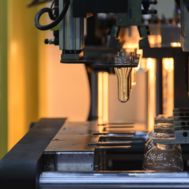
Industries

Applications

Cookie Consent
Cookies are used for statistical purposes and to improve the site.
Cookies will be used after you click "Accept" or if you continue using Dynisco.com
To find out more please review our Privacy Policy.
Material characterization is a pivotal aspect of materials science, especially in polymer evaluation and analysis. One of the most critical parameters in this process is accurately measuring melt pressure during extrusion. This article delves into the intricacies of ensuring precise melt-pressure measurements, emphasizing its significance in material characterization and polymer rheology.
Melt-pressure measurements are quintessential in material characterization, particularly in extrusion processes. These measurements provide insights into the behavior of polymers under varying conditions, aiding in their comprehensive evaluation. Accurate readings are paramount, as they directly influence the quality and consistency of the end product.
The foundation of accurate melt-pressure measurements lies in the use of superior equipment. It is imperative to employ melt-pressure transducers that endure the elevated temperatures and pressures intrinsic to extrusion processes. Dynisco, a leader in the field, offers an array of melt-pressure transducers tailored for extrusion applications. These devices are engineered to deliver precise readings, ensuring impeccable material characterization.
Melt pressure transducers are sensors that measure the pressure within equipment – specifically extruders. These devices generally use a pressure-sensitive element like a Bourdon tube, diaphragm, or bellows coupled with an electrical element to output pressure readings as digital signals. They are ubiquitous in plastics manufacturing industries and play an essential role in quality assurance and control. It is worth noting, however, that pressure transducers can be prone to certain issues. Hence, it is important to bear key quality metrics in mind throughout their service.
Regular calibration of melt-pressure transducers is non-negotiable to maintain the integrity of measurements. Calibration should be executed using a recognized standard, such as a deadweight tester. This procedure guarantees that the readings remain accurate over time, reinforcing the reliability of the material characterization process.
An often-overlooked aspect of accurate melt-pressure measurements is the correct installation of the transducer. It should be strategically positioned to be directly exposed to the melt stream. Furthermore, proper grounding is essential to negate any potential electrical interference, ensuring the fidelity of the readings.
The accuracy of melt-pressure measurements can be compromised if the process conditions deviate from the recommended parameters. It's vital to continuously monitor factors like temperature and pressure. Any aberrations from the stipulated range can adversely impact the precision of the measurements, thereby affecting the overall material characterization.
Accurate melt-pressure measurements are the linchpin of effective material characterization in extrusion processes. One can achieve unparalleled precision in measurements by embracing high-quality equipment, ensuring regular calibration, adhering to installation protocols, monitoring process conditions, and following established standards.
At Dynisco, we are committed to advancing the frontiers of material characterization. Our LCR7000 Series Capillary Rheometers are a testament to our dedication to excellence. Designed with precision and efficiency in mind, these rheometers are the epitome of reliability. We invite you to explore the potential of the LCR7000 Series and full Online Rheometer offering to elevate your material characterization endeavors.

38 Forge Parkway,
Franklin MA 02038
+1 508 541 9400
Pfaffenstr. 21, 74078,
Heilbronn, Germany
+49 7131 297 0
Lot 3615, Jalan SM 6/8
32040 Seri Manjung, Perak, Malaysia
+605 6884014